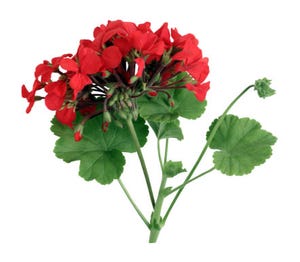Jack3d and other MHA-containing supplements fuel adulteration, safety concernsJack3d and other MHA-containing supplements fuel adulteration, safety concerns
Manufacturers claim MHA is a constituent of geranium oil, but testing labs aren't so sure. Meanwhile, sports nutrition experts worry about the safety of products popular with high school athletes.

Nutrition Business Journal is calling it the next potential “nightmare” in dietary supplements. Frank Jaksch, CEO of the analytical testing lab ChromaDex, refers to it as “one scary beast.” Ed Wyszumiala, general manager of dietary supplement programs at NSF International, says it has him worried about consumer safety. It is methylhexaneamine (MHA), a compound developed by Eli Lilly more than 50 years ago as a nasal decongestant drug. Today, MHA is showing up in a growing number of pre-workout sports nutrition supplements and being labeled as a constituent of geranium oil. The ingredient was a popular topic of discussion during last week’s Nutracon and Natural Products Expo West/SupplyExpo.
Why the concern?
For Wyszumiala, one problem lies in the fact that extensive NSF analysis has shown that geranium oil—which is an approved food flavoring that is legal for use in dietary supplements—does not contain MHA. “This is not a supplement ingredient,” Wyszumiala told NewHope360.com. Manufacturers using MHA in their sports nutrition products say otherwise, but their main piece of evidence is one questionable study published by Guizhou University in China.
Wyszumiala said his team had the study translated from Chinese to English and does not put any credence in the research. According to NBJ, which investigated MHA/geranium oil topic in its February 2011 Sports Nutrition & Weight Loss issue, the Chinese paper contains “a possible typo” — hexanamide is referenced, not hexanamine—that “calls the entire relevancy of the data into question.”
MHA: Dangerous at high dosages
Aside from being a potential dietary supplement adulterant, MHA is also fueling worry because of its powerful stimulating effects. In a 2006 Washington Post article on the synthetic ingredient, Don Catlin, MD, CEO of the Anti-Doping Research Group, said the chemical structure of MHA is akin to amphetamines and ephedrine. “In this class of drugs, everything depends on the dose,” Catlin said. “Take enough of it and your heart rate and blood pressure will go up and you can die.”
And herein lies a serious problem, Wyszumiala said. MHA is a key ingredient in one of the most popular pre-workout sports supplements: USP Labs’ Jack3d—a product that can be found in high school locker rooms and weight rooms throughout the country. “Jack3d is very popular with high school students,” Wyszumiala said. “I worry about those young athletes who decide to take more than the recommended dose. It could be very dangerous for them.”
In its marketing for Jack3d, USP Labs touts the product’s ability to “give you the mad aggressive desire and ability to lift more weight.” In online testimonials for the product—of which there are many—many users echo this sentiment (“I had the best workout I’ve had in months,” wrote one), while also noting Jack3d’s stimulating effects. “I took it the other day and had to make a stop at a business on the way to the gym. I felt like a crackhead talking to this lady who worked there … I was tingling all over and trying not to giggle or twitch like a tweaker.”
MHA was banned by the World Anti-Doping Agency in 2010. Jack3d is on the list of products banned by the NCAA. MHA and geranium oil extract can be found in numerous other products including E-Pharm’s ClearShot, an energy drink concocted by Patrick Arnold, the steroid designer behind the BALCO scandal. “We see it appearing more and more frequently, especially in the energy beverage category,” Jaksch told NBJ.
Industry gives MHA a closer look
In its reporting on MHA, Nutrition Business Journal contacted the U.S. Food and Drug Administration (FDA) for comment. The agency's response: “FDA is aware of the ingredient but we do not have any direct evidence that would lead us to conclude that it is unsafe.”
Although the FDA is not yet moving on treating MHA as a supplement adulterant, Wyszumiala said the U.S. supplement trade associations are paying closer attention to the ingredient and its use. This, Wyszumiala added, is encouraging. “We have an opportunity here to deal with what could be another serious adulteration issue in dietary supplements,” he said.
Many conversations during last week’s Nutracon ingredients conference focused on the potential dangers surrounding MHA and geranium oil extract. During the event, Anthony Almada, a biochemist and president and CEO of GENr8, told Nutraingredients-USA.com that discussions on this topic once held behind “closed doors” are now finally going public.
Almada also said that he believes the concern surrounding this popular sports nutrition ingredient will escalate. “I expect there to be a mushroom cloud sighting before summer.”
ChromaDex’s Jaksch told NBJ that he feels the “geranium story will end badly” for the dietary supplement industry if it doesn’t take appropriate action. “It’s a scary beast,” he said. “The industry just doesn’t need another story like that.”
About the Author
You May Also Like





